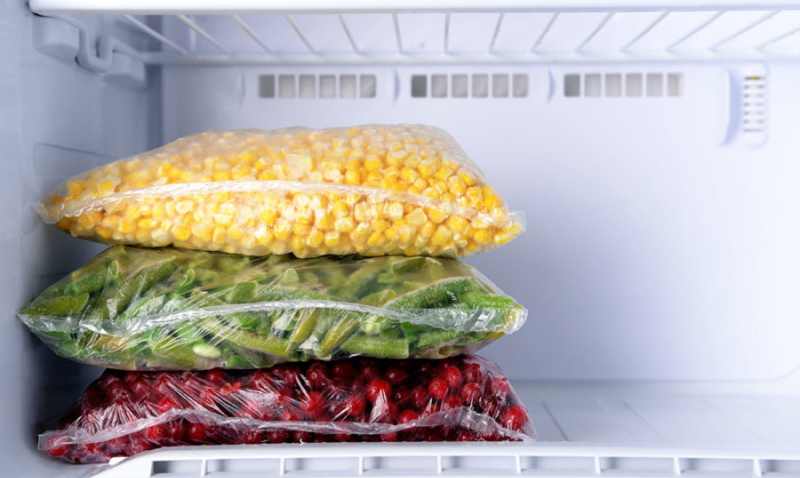
What foods cannot be frozen?
0
A freezer is an essential attribute of any kitchen, and modern technologies allow you to freeze most products with almost no loss of quality. However, there are a number of ingredients for which freezing is contraindicated, as they can spoil or become dangerous to health.
Food safety and sanitation expert, University of Central Florida professor Kevin Murphy, expressed his opinion on this topic.
So, here are 10 products that should not be frozen under any circumstances.
Liquid in a closed glass container or jar
In principle, if you remember the high school curriculum, you yourself will not freeze liquids in a closed container, since in the liquid state water has a greater density than in the solid state, and when frozen, the glass can crack. This applies to glass bottles, jars and even plastic containers.
“The freezing process can cause a container of liquid to crack or even explode,” Murphy said. “The same goes for plastic containers that don’t allow room for the liquid to expand.”
Whole eggs
While some people believe that freezing eggs is okay, Murphy recommends against it: eggs can burst in the freezer.
“Solids contract when they are cooled. Unlike solids, water expands when frozen. So once eggs reach their freezing point, they can crack,” Murphy said.
Lettuce greens
If you freeze and then thaw a green salad, it won't be crisp. When you buy lettuce from the store or market, it's usually fresh and delicious. Freezing destroys the structure of leafy greens and causes them to lose their freshness.
“In the freezer, lettuce will go from crisp to soft, tasteless and unusable,” Murphy said.
Fresh vegetables and fruits
If you want frozen fruits or vegetables, you're better off buying them at the store, in the freezer section. According to Murphy, freezing fresh fruits and vegetables properly requires very low temperatures, and most home freezers aren't capable of delivering a quality end result.
“If you want frozen fruits and vegetables, buy them. The manufacturers have the necessary equipment to properly freeze fruits and vegetables,” Murphy said.
Defrosted meat, fish or poultry
Freezing meat that has already been frozen can lead to poor quality and increased potential for bacterial growth, Murphy said.
“Manufacturers typically freeze meat at minus 60 degrees Celsius to kill parasites. This lowers the temperature of the meat very quickly and the cells don’t burst,” Murphy said. “Freezing meat at home at a standard freezer temperature of minus 18 degrees Celsius makes it tough and tasteless. It’s also a real breeding ground for microbes, which don’t always die in the freezer.”
Fried Foods
If you have leftover wings or fries, don't rush to freeze them. The cold temperature in the freezer will cause fried foods to lose their delicious crust.
Milk, sour cream, yogurt
According to the International Dairy Genomics Consortium, milk can be frozen for one to three months. Although, as Murphy points out, milk or other dairy products are unlikely to remain the same as they were before freezing (they will separate into water and chunks of thick mass).
Raw potatoes
Murphy says raw potatoes don't freeze well. If you're freezing a soup, stew, casserole, or other dish that contains potatoes, it's best to leave them raw and cook them before serving. Another option is to add the potatoes to the dish after they've been thawed.
“The water and starch in raw potatoes don't freeze well, so you just end up with a mealy, grainy, bad taste,” Murphy said.
Coffee beans or ground
You can put ice cubes in your coffee, but you shouldn’t put coffee beans or ground coffee beans in the freezer.
“If you freeze coffee, it will become damp and have an unpleasant taste and smell because it will absorb odors and moisture from other foods in the freezer.”
Fresh herbs
Murphy emphasizes that when you freeze, the cells in the herbs expand, which is why the herbs break down.
“When you freeze herbs at a normal temperature of around -18, even if you have a good freezer, the herbs will still gradually shrink, and when they finally freeze, the cells will burst,” says Murphy. “The herbs will stay frozen, but when you thaw them, you get a soft mush. Especially delicate herbs like parsley, basil, and cilantro will turn into a mushy substance. Some of the herbs with denser leaves, like rosemary or thyme, will look a little better.”
To be honest, I don’t freeze often myself and mostly use the freezer to store store-bought frozen foods.

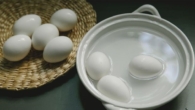
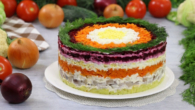

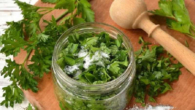
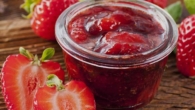
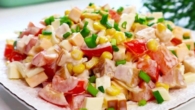
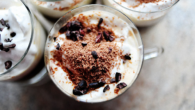
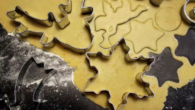
Leave a Reply